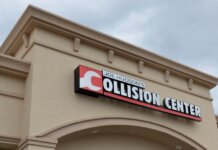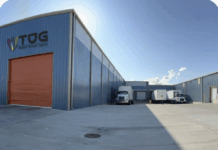
Automotive manufacturers around the country are increasingly focusing on adding electric vehicles to their lineups, with some planning to electrify large portions of their fleets or transition entirely to electric vehicle production in as little as a decade. As more companies accelerate their production plans, Alabama’s automotive industry is keeping pace.
“The automotive industry in Alabama deeply respects the environment and there are strong initiatives in all of our OEMs and suppliers to protect our environment,” says Ron Davis, president of the Alabama Automotive Manufacturers Association. “Some of the main things we look at are our carbon footprint and our use of fossil fuels. We are very sensitive to how much waste goes into landfills, and our plants are very aggressive about trying to have zero waste and do all the recycling we can. It’s a very important part of our business.”
A big part of that, he adds, includes plans to transition to electric vehicles. “All of the major car plants in our state are very aggressive in working on green initiatives.”
Mercedes-Benz U.S. International (MBUSI), based in Tuscaloosa County, is leading the way with a $1 billion expansion slated for electric vehicle production, including a 600,000-square-foot battery plant in Bibb County that will produce electric batteries for its new line of electric models, the EQS and the EQE SUV.
According to Dr. Jörg Burzer, a member of the board of management of Mercedes-Benz AG, Production and Supply Chain Management, MBUSI is a “very important cornerstone for our electric strategy.” The plant, which is the exclusive producer of GLS and GLE SUVs for Mercedes, will also be the exclusive producer of the EQS, which starts production in 2022. Currently, MBUSI exports the models it produces to approximately 130 countries.

MBUSI will produce both conventional models and the EQS and EQE models under one roof. “One of our cornerstones is to be flexible in terms of production,” Burzer says, adding that he is looking forward to seeing the customer response to the EQS and EQE models. Depending on the response, the EQS and EQE models could have their own dedicated line at MBUSI, but initially Burzer indicates that both conventional and electric vehicles will be produced on the same line.
Mercedes-Benz’s battery plant in Bibb County will produce the batteries needed at MBUSI. However, Burzer says there will be an announcement coming in the next couple of months about where Mercedes-Benz plans to build a battery cell factory. The battery cells will then be shipped to battery production plants, including the one in Bibb County. Mercedes’ strategy, according to Markus Schäfer, chief operating officer of Mercedes-Benz, is to have eight gigafactories producing battery cells around the world, one of which will be in the United States to produce battery cells that will end up in vehicles at the
Tuscaloosa and Charleston, South Carolina, plants.
In 2022, Hyundai Motor Manufacturing Alabama (HMMA) will begin producing electric vehicles at its Montgomery plant. It’s part of a four-year, $7.4 billion U.S. investment in technology and production upgrades that Hyundai Motor Group announced in May. HMMA, Hyundai’s first U.S. assembly and manufacturing plant, currently builds the Sonata and Elantra sedans and the Santa Fe, Tucson and Santa Cruz SUVs. Details regarding the upcoming electric model have not been released.

Earlier this year, Honda Motor Co. revealed its intention to phase out sales of gas- and diesel-fueled cars by 2040 and that it would aim for 40% of its North American sales to be zero-emission vehicles by 2030. While the announcement did not specifically mention Honda Manufacturing of Alabama, the company’s exclusive global production source for the Odyssey, Ridgeline, Passport and Pilot models, it did reveal plans to introduce two new
electric SUVs to the U.S. market in 2024.
Keeping ahead in the race for electric vehicle production is now a top priority for auto industry suppliers as well.
In June, officials from Westwater Resources Inc., a Colorado-based mineral resources company committed to developing materials for clean and sustainable energy production, and its subsidiary, Alabama Graphite Products LLC, joined Gov. Kay Ivey and other state and local officials to announce the company’s plan to build an advanced graphite processing plant in Coosa County. Graphite is the main component of the lithium-ion batteries that run electric and hybrid vehicles, in addition to almost all portable devices like laptops and cell phones. As the world’s demand for clean energy sources and a reduced carbon footprint increases, so does the need for U.S.-sourced graphite (currently China is the world’s largest graphite supplier). In a press release issued this summer, Ivey said the Alabama Graphite processing plant, the first large-scale producer of refined graphite in the country, will make the state the U.S. leader in graphite production. Alabama Graphite will make an initial investment of $80 million to start building the plant near Alexander City in 2022. A second phase of the project is expected to bring the total investment to $124 million.

There is also an urgent need to expand Alabama’s infrastructure to support the growth of the electric vehicle industry. In June, Ivey awarded 18 grants, totaling more than $4.1 million, to support the installation of electric vehicle charging stations along interstates and major highways in Central and North Alabama. Funding for the project comes from the Volkswagen (VW) Settlement Plan, from which Alabama was awarded approximately $25 million, and the Alabama Legislature. The VW settlement is an agreement the company made with the U.S. Environmental Protection Agency (EPA) after the agency filed a complaint against the German automaker claiming that they violated the Clean Air Act by selling vehicles equipped with “defeat devices,” computer software designed to cheat on federal emissions tests. VW was found in violation of the Clean Air Act in 2016 and agreed to a $14.7 billion settlement. Funds will support national and state initiatives to reduce nitrogen oxide emissions, invest in clean vehicle technology, and build and maintain electric vehicle infrastructure.
The Alabama Department of Economic and Community Affairs (ADECA) is administering the grants in collaboration with the Alabama Clean Fuels Coalition (ACFC), a nonprofit organization that serves as the state’s principal coordinating point for alternative fuels and advanced technology vehicles. In 2020, the ACFC, along with Clean Cities Coalitions from 13 other states, joined the DRIVE Electric USA initiative, a grant funded by the U.S. Department of Energy’s Vehicle Technologies Office that seeks to raise awareness and increase adoption of electric vehicles. Through its Drive Electric Alabama initiative, which is scheduled to operate through December 2023, the ACFC will focus on educating consumers, utilities, utility regulators and government officials; engaging auto dealers and fleet leaders; and conducting electric vehicle infrastructure planning.
As ADECA and the ACFC pave the way for developing electric vehicle infrastructure and as Alabama positions itself to be a leader in manufacturing electric vehicles and batteries, the challenge will be keeping up with the demand for charging stations around the state. The funds recently awarded by the governor will account for more than 80% of the cost to install charging stations in Jefferson, Tuscaloosa, Calhoun, Cullman, DeKalb, Greene and St. Clair counties.
Katherine MacGilvray is a freelance contributor to Business Alabama and Erica West is the magazine’s editor.



